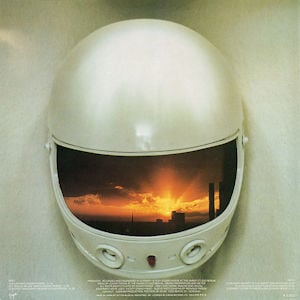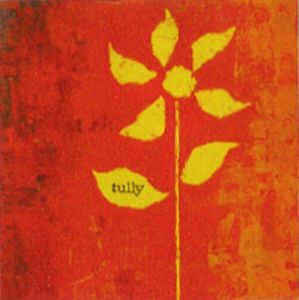/PAlogo_v2.gif) |
|
Post Reply 
|
| Author | ||||||||||||||||||
hellogoodbye 
Forum Senior Member 

VIP member Joined: August 29 2011 Location: Troy Status: Offline Points: 7251 |
 Topic: 4 little gems (112) Topic: 4 little gems (112)Posted: October 22 2014 at 15:47 |
|||||||||||||||||
|
Another Roadside Attraction : St
http://www.youtube.com/watch?v=WMRw0L4wOHo Blue Motion : St http://www.youtube.com/watch?v=6brXXSLwy1U Nadavati : Le vent de l'esprit souffle où il veut http://www.youtube.com/watch?v=qc0vYT3CKXQ Tully : St http://www.youtube.com/watch?v=5MIVOHpJhLI
|
||||||||||||||||||
 |
||||||||||||||||||
hellogoodbye 
Forum Senior Member 

VIP member Joined: August 29 2011 Location: Troy Status: Offline Points: 7251 |
 Posted: October 22 2014 at 15:49 Posted: October 22 2014 at 15:49 |
|||||||||||||||||
 Blue Motion
Blue Motion Progressive Electronic Review by Sean Trane  Don't look too much into the genre this band is classified in: it's a cross of symphonic and avant- garde, but no electronics at all. Don't look too much into the genre this band is classified in: it's a cross of symphonic and avant- garde, but no electronics at all.Though this Circus' successor (since it features both Grieder and Hauser), don't expect that the two bands sound similar. Circus' unusual line-up (no keyboards or electric guitar) gave them a unique and inimitable sound, but Blue Motion is a double KB and drums instrumental affair. In the present project, wind-player Stefan Grieder drops the horns and concentrates on keys, giving the band a distinctive sound, compared to other KB-led trios. Amongst the KB used, we'll hear a Hammond, a Clavinet, a Rhodes, an ARP and a grand piano. A priori, you'd think that this kind of KB-led trio thingie was a thing of the past by this album's release, but Blue Motion is definitely to be ranked in the UFO category along with Flamen Dialis and a couple other Continental Europe projects of the times. Basically, this album is centred on two lengthy epics (opening each side), and a flurry of short pieces (9 of them are inferior to 3 minutes), and obviously those two 12-mins (minimum) pieces are the foundations. The 14-mins Stromboli opens on a wild Emersonian Hammond and soon replaced by a piano and Clavinet duo, the whole thing powered by Hauser's always amazing drumming. With plenty of twists and twirls, you'll get dizzy trying to follow Grieder and Amman's constant explorations. An eruption of the volcano certainly is less exciting than this wild extravaganza. The rest of the A-side could be seen as a sometimes-dissonant and disjointed suite with the following Fingers is a calm piano exploration, while Moontales is dominated by the Hammond, but underlined by the Clavinet. Hauser's amazing xylophone (Motions) and Grieder's dissonant piano (Fingers 2) are much reminiscent of Circus' Dawn piece, and both pieces are followed by the title track, which segues into the splendid piano-only 31/8. The 11-mins Stonehenge opens the flipside, which opens on a calm piano, but the accompanying Hammond and Clavinet are slowly elevating the pace, and Hauser's always entertaining drums and percussions are certainly driving the keyboards overboard. Therest of the album is taken up by variations of Motions and Moontales, though Grieder finds a Parking spot for his piano, before a grandiose end in Slow Motion Blue Motion's sole album received a Laser's Edge release some 20 years ago, but you can still find another version on the mini-lp specialist Japanese label Belle Antique, though it's probably one of the more botched up reissues of theirs, at least of the cardboard side of things. And the so-called SHM disc was taken directly from LE's remaster, so one can wonder what the added value is for such an expensive rekidd. Despite that, it might be the only solution to lay your hand on this baby; and believe me: it's certainly worth the investigations and investment. While it may not be of the calibre of Circus' first two albums, but it is a worthy offshoot. |
||||||||||||||||||
 |
||||||||||||||||||
Mellotron Storm 
Prog Reviewer 
Joined: August 27 2006 Location: The Beach Status: Offline Points: 12938 |
 Posted: October 22 2014 at 18:57 Posted: October 22 2014 at 18:57 |
|||||||||||||||||
|
Blue Motion over Nadavati. I have heard of the Canadian band but I don't think i've actually heard their music before. The others are also new to me.
|
||||||||||||||||||
|
"The wind is slowly tearing her apart"
"Sad Rain" ANEKDOTEN |
||||||||||||||||||
 |
||||||||||||||||||
verslibre 
Forum Senior Member 

Joined: July 01 2004 Location: CA Status: Online Points: 15005 |
 Posted: October 22 2014 at 19:07 Posted: October 22 2014 at 19:07 |
|||||||||||||||||
|
BM
|
||||||||||||||||||
 |
||||||||||||||||||
hellogoodbye 
Forum Senior Member 

VIP member Joined: August 29 2011 Location: Troy Status: Offline Points: 7251 |
 Posted: October 23 2014 at 00:49 Posted: October 23 2014 at 00:49 |
|||||||||||||||||
|
Very good album, guys
 . Reminds me of some RPI old bands. . Reminds me of some RPI old bands.
|
||||||||||||||||||
 |
||||||||||||||||||
hellogoodbye 
Forum Senior Member 

VIP member Joined: August 29 2011 Location: Troy Status: Offline Points: 7251 |
 Posted: October 23 2014 at 05:44 Posted: October 23 2014 at 05:44 |
|||||||||||||||||
 Tracklist
Credits
http://www.youtube.com/watch?v=A6IXszSIh3I |
||||||||||||||||||
 |
||||||||||||||||||
zravkapt 
Special Collaborator 

Honorary Collaborator Joined: October 12 2010 Location: Canada Status: Offline Points: 6446 |
 Posted: October 23 2014 at 09:12 Posted: October 23 2014 at 09:12 |
|||||||||||||||||
|
All new to me but I voted for Tully.
|
||||||||||||||||||
|
Magma America Great Make Again
|
||||||||||||||||||
 |
||||||||||||||||||
hellogoodbye 
Forum Senior Member 

VIP member Joined: August 29 2011 Location: Troy Status: Offline Points: 7251 |
 Posted: October 23 2014 at 09:54 Posted: October 23 2014 at 09:54 |
|||||||||||||||||
|
Probably my choice too, my friend.
 This album is not very powerful, but it has an incredible energy. This album is not very powerful, but it has an incredible energy.
|
||||||||||||||||||
 |
||||||||||||||||||
hellogoodbye 
Forum Senior Member 

VIP member Joined: August 29 2011 Location: Troy Status: Offline Points: 7251 |
 Posted: October 24 2014 at 03:45 Posted: October 24 2014 at 03:45 |
|||||||||||||||||
 “A diverse mix of progressive psych-folk and experimental textures.” CD Reissue by Chapter Music (2014) Melbourne-based label Chapter Music has completed its CD reissue programme of albums by one of Australia’s foremost progressive-psych bands of the late 1960s / early 1970s – the mighty Tully! Chapter Music’s reissue program began in 2009 with the previously unreleased Live at Sydney Town Hall 1969-70 and proceeded through the astonishing sound scapes of the group’s 1971 Sea of Joy original soundtrack album and final record from 1972 Loving is Hard. Add to that the Richard Lockwood 2-CD retrospective set In the Doorway of the Dawn: The Chronicle of a Song, Vols 1 & 2, 1972-2012 and now another piece in the puzzle, Tully’s 1970 self-titled debut and you have a seriously significant historical dig that will repay the avid psych music aficionado with repeated listening pleasure. So let’s recount briefly the Tully story. I can do that here by plundering and expanding upon the Tully entry from my book The Encyclopedia of Australian Rock and Pop (Allen & Unwin, 1999). Tully / Formed: 1968 / Style: Progressive rock, folk Original line-up: Terry Wilson (vocals, flute), Michael Carlos (Hammond organ, piano; ex-Levi Smith’s Clefs), Richard Lockwood (sax, flute, clarinet, piano; ex-Levi Smith’s Clefs), John Blake (bass; Levi Smith’s Clefs), Robert Taylor (drums; ex-Levi Smith’s Clefs) If the late 1960s was a time of radical social and musical change, when rock musicians went in search of cosmic enlightenment by mingling Eastern philosophies with Western ideals, then Sydney band Tully was the first local manifestation of that search for nirvana. Alongside the likes of Tamam Shud and Spectrum, Tully helped usher in a bold new era of Australian rock music. To put it into a historical context, when Tully formed the local scene was still dominated by teen idol pop stars and all the attendant fan hysteria. Tully were serious musicians, willing to experiment and explore sound through intellectual stimulus and emotional feedback. Improvisation and the mood of the moment were the keys to expanded consciousness. Early fan of the band and vociferous local raconteur / poet / writer Adrian Rawlins declared the band to be “the greatest musicians in the Western world”. To facilitate their search for spiritual awareness, the members of Tully combined rock, jazz, psychedelia and the European symphonic tradition with a large dash of Eastern mysticism that placed the idea of love and self-knowledge at the core of existence. If such a metaphysical aesthetic now seems intolerably pompous and a flight of pure hippie fancy, then remember that Tully was a product of its time, a time when people believed they could change the world. And for a time Tully’s innovative and creative musical expression really did make a difference. Tully emerged at the end of 1968 from the ranks of R&B band Levi Smith’s Clefs. Having recruited singer Terry Wilson (ex-Swing Shift), Tully took a residency at Sydney’s Caesar’s Palace discotheque. The band was forced to leave a month later because the patrons couldn’t dance to the music which essentially comprised elongated versions of tunes by the likes of The Beatles, Procol Harum, the Bee Gees and Bob Dylan (sort of like an Antipodean version of Vanilla Fudge or early Deep Purple, for example). Tully came to the attention of Sydney underground film makers collective UBU Films and they staged a series of concerts at Paddington Town Hall and the Sydney Showgrounds where a hip new generation of self-styled flower children were willing to embrace the band’s more avant-garde sound and approach. The powerful, rhythmic refrains of Tully were best appreciated, by all accounts, sitting cross-legged (and somewhat stoned) on the floor. In July 1969 Tully became resident backing band for director Jim Sharman’s Australian production of the American ‘tribal love-rock musical’ Hair. Tully appeared on the Original Cast soundtrack album of Hair (credited to Tully Featuring + 4, the extra players including renowned jazz vibes player John Sangster) which came out at the end of 1969 on the Spin label. Tully stayed with the stage show for six months, during which time the band also appeared in a series of successful concerts at Sydney Town Hall and the Mandala Theatre. In late 1969, Tully starred in its own television series Fusions, a program of six half hour shows produced by the ABC that highlighted the band’s live prowess and musical adventurousness. As one of Australia’s foremost concert attractions, Tully naturally played a leading role in Australia’s first rock festival Pilgrimage For Pop, Ourimbah held over the Australia Day weekend, January 1970. Other acts appearing included Billy Thorpe and the Aztecs, Jeff St. John and Coppewine, Levi Smith’s Clefs, Wendy Saddington, Doug Parkinson In Focus, Tamam Shud, Leo De Castro and Friends, Max Merritt and the Meteors and the festival organizers, expatriate American acid-rock band Nutwood Rug. By that stage John Blake had left the band. Graham Conlan (ex-White Wine) and Murray Wilkins (ex-Chain) each filled in on a temporary basis until Ken Firth took over permanently. In February 1970, Tully achieved a new measure of acclaim by being invited to play with the Sydney Symphony Orchestra under the conductorship of John Hopkins. The occasion was the Sydney Prom concerts and the work was composer Peter Sculthorpe’s Love 200. The band’s highly acclaimed debut album Tully came out in July 1970. The album’s spacious, reverential and lyrical sense of arrangement owed very little to the burgeoning boogie, blues and hard rock movement. The album sold surprisingly well, spending ten weeks on the Australian chart after reaching a peak placing of #8. Up to that point, keyboardist Michael Carlos had forged a potent musical identity by way of his Hammond organ being fed through a Lesley cabinet. Likewise Richard Lockwood was a free-form, avant-jazz reed player of outstanding skill and drummer Robert Taylor hammered a huge, double bass-drum kit, so they could be a loud, heavy band in concert. By August 1970, their concerts were billed as ‘Tully and The Moog’, with the band becoming the first local group to use the new musical instrument the Moog synthesiser and they were moving into softer realms. In December 1970, Wilson and Taylor left the line-up. The departures were basically due to the fact that they were the only members not involved in the religious sect Meher Baba. Prior to the departures, Lockwood and Firth worked with Tully’s sister band Extradition on its debut album. The connection came about when Tully and Extradition undertook a joint national tour. The members of Tully were so entranced with the gentleness and beauty of Extradition’s music that they decided to forego the heavier predilections of Tully’s expansive musical terrain for a more softer, folksy vibe. Extradition’s ultra-rare psych-folk album Hush came out in June 1971 and is now recognised worldwide as one of the purest and most highly prized examples of the genre. By the time the album appeared, Colin Campbell (acoustic guitar) and Shayna Stewart (nee Shayna Karlin, vocals) from Extradition had been performing with Tully for six months. The new, drummerless Tully line-up issued the delicate single ‘Krishna Came’ b/w ‘Lord Baba’ (May 1971) which reflected the band’s religious leanings. Tully’s second album Sea Of Joy (June 1971) was the soundtrack to Paul Witzig’s surfing film of the same name. As such Sea Of Joy featured a collection of finely crafted musical themes rather than self-contained songs, although the esoteric, folksy mood of the music suited the film’s themes of peace, beauty, simplicity and freedom. Just before the album appeared, Carlos left Tully to re-join Levi Smith’s Clefs. Several months later Tully broke up, and Lockwood joined Tamam Shud. Tully’s final album Loving Is Hard(recorded with Carlos) finally appeared in May 1972. Canadian-born Carlos went on to carve out a respectable career as an in-demand session player and musical arranger for the likes of Jeannie Lewis, Jon English, Ross Ryan and Judy Henderson. Carlos was musical director with the backing band utilised for the 1972 local production of Andrew Lloyd Webber and Tim Rice’s rock musical Jesus Christ Superstar. He later composed soundtracks for feature films such as Sunday Too Far Away (1975), Storm Boy (1976), Listen To The Lion (1977), Blue Fin (1978), The Long Weekend (1978), Dawn! (1979), The Odd Angry Shot(1979) and The Dark Room (1982). Firth later joined pop band The Ferrets, co-writing their massive hit single ‘Don’t Fall in Love’. So that’s the Tully story; what of the album Tully itself? If Tully proved to be a profound and loud concert experience early in the piece, they by and large eschewed the heavy blues-rock framework for a more free-form sense of arrangement. The album is very diverse overall with a mix of progressive psych-folk and experimental textures. It can get a trifle obscure in parts but the spacious, pastoral feel creates an almost reverential vibe about it. Side One opens with a minute of Lockwood’s piercing, interlocking, atonal reeds before the rest of the band launches in with a tidal wave of forceful playing and Taylor’s rousing vocals. ‘You Realize, You Realize’ gives you a good indication of what the band must have been like in full-blown concert mode. Just when you think the whole affair will be a wild, trippy ride, the softer side of Tully immediately becomes evident on tracks such as ‘La Nave Bleu’, ‘The Sun Is Shining’, ‘Love’s White Dove’ (replete with church choir backing) and ‘Love’. They might be softer songs but they’re certainly not commercial sounding in a traditional sense. The folksy ‘La Nave Bleu’ in particular is an amazing song; the combination of mournful vocal melody, subtle piano accordion, gently strummed acoustic guitar, jazzy piano chords and sweet clarinet lines gives it a dreamy Parisian feel to these ears. Certain trad-jazz / musical hall tendencies emerge on ‘Do You Ever Think Of Nothing’ and ‘Sleepy-Head Red’. Lockwood also adds his dulcet tones with a brief poem at the end of the piano piece ‘The Paradise Of Perfect Silence’. Then the element of surprise re-emerges with the most out-there track, ‘Phsssst’ which is five minutes of organ drones and spacey sounds. ‘Lace Space’ is Taylor’s drum solo piece which is made all the more bizarre by Lockwood’s wild vocalese and reed blasts (bookended by a child’s babbling). The album concludes with three Carlos compositions. The jazzy piano / flute / clarinet love song ‘You Are the World’ is probably the most melodious tune on the album. It segues straight into another jazzy piece ‘Just About Time’ which initially reminds one of a Randy Newman tune only to take a left turn into a frenzied coda of rumbling organ flows, pounding drums and squealing reeds before ending with an abrupt edit cut. The closing, six-and-a-half minute ‘Waltz To Understanding’ was one of the band’s concert staples, opening with glacial, churchy organ (think ‘A Whiter Shade of Pale’). The arrangement begins to swell like vast, mid-ocean waves then the organ recedes about the five minute mark to leave off with the sound of Lockwood’s plaintive clarinet solo. For the CD reissue Chapter Music has added a previously unreleased take of The Beatles’ ‘Yesterday’ which the band had recorded in 1969 for a provisional singles release on EMI. Predictably the staid record company bypassed the release as it’s a grandiose, adventurous take, more Vanilla Fudge organ-heavy than the acoustic folk of the original. It just goes to show how much ahead of the game Tully really was at the time.
TULLY – Tully (EMI/Columbia SCXO-7926) 1970 / CD reissue (Chapter Music CH99) 2014 1. YOU REALIZE, YOU REALIZE (Richard Lockwood) 7. SLEEPY-HEAD RED (Michael Carlos) CD Bonus Track (Previously unreleased) TULLY |
||||||||||||||||||
 |
||||||||||||||||||
hellogoodbye 
Forum Senior Member 

VIP member Joined: August 29 2011 Location: Troy Status: Offline Points: 7251 |
 Posted: October 25 2014 at 00:56 Posted: October 25 2014 at 00:56 |
|||||||||||||||||
 Another Roadside Attraction - s/t. 1979 ARA.
Another Roadside Attraction are yet another late 1970's band that has that "Midwest progressive rock" sound that I'm quite fond of, and is littered throughout these pages. They feature the unusual lineup of two keyboardists, a drummer and a vocalist. The songs themselves have that slight FM radio slant that makes me a bit nostalgic. But the instrumental sections are right out of the classic ELP playbook. In fact, this album reminds me most of Morgan's "The Sleeper Awakes" and The Trip's "Time of Change". Like those albums, hyper active acoustic piano drives the compositions forward. Synthesizers tend to be the solo instrument of choice. If ProgQuebec ever becomes ProgOntario, then perhaps they'll take on this one! The LP itself has the look and feel of your typical US private press and features neat cover art. CDRWL. |
||||||||||||||||||
 |
||||||||||||||||||
Post Reply 
|
|
| Forum Jump | Forum Permissions  You cannot post new topics in this forum You cannot reply to topics in this forum You cannot delete your posts in this forum You cannot edit your posts in this forum You cannot create polls in this forum You cannot vote in polls in this forum |